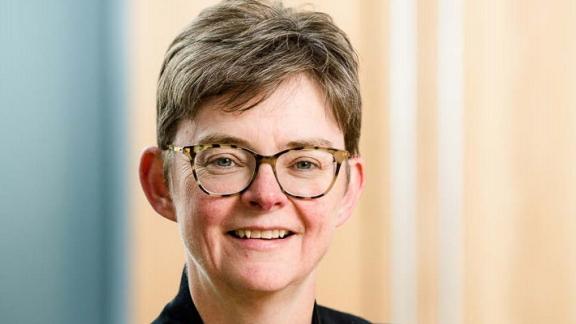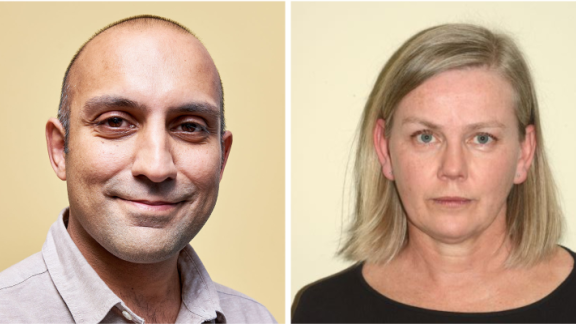Commissioning is everyone’s business

As the NHS moves to integrated care, Jane Milligan, ICS lead, explains the integral role commissioning has in integrated care systems and showcases how they’ve been doing things at the seven north east London CCGs.
‘Everyone needs to be a commissioner’ has long been my mantra because, at its core, effective NHS commissioning ensures we have the best health and care services in place to meet the needs of our population.
In its simplest terms, commissioning is the continual process of planning, designing, agreeing and monitoring services and includes activities such as assessing health needs for a population, designing patient pathways, negotiating contracts and continuously assessing the quality of these services. As any good commissioner will know, a one-size-fits-all approach is simplistic and is why a place-based and population health management focus is vital alongside a more strategic system-based approach where it makes sense to do things once.
That is why in north east London (NEL) we largely welcomed the NHS England and NHS Improvement’s paper on next steps for integrated care in November and the subsequent ICS legislation proposals set out in the government’s white paper, which was published last month. This all builds on the NHS Long Term Plan’s vision for delivering integrated care systems and enhancing place-based working.
The health and social care white paper
For us the white paper is largely in line with our NEL plans and builds on much of our progress to date. We have been working hard to establish strong provider alliances, develop our population health management approach, strengthen our use of digital and data for the benefit of patients and build strong partnership working – working closely with colleagues across the system.
It is important for us to be able to interpret the legislation locally and create a structure that works best for us. There is a real willingness in NEL to come together and provide seamless health and care provision for local people, and when it matters most, such as in responding to a global pandemic like COVID-19, we have shown the true strength and value in collaboration. Our pandemic response and now our vaccination programme delivery is a true test of integration in action, requiring commissioning and providers to work differently in a much more integrated way than ever before. We have teams of commissioners and providers working closely together to manage areas like bed capacity, care homes, vaccinations, homelessness. The sheer scale of what we have achieved as a whole system shows we cannot go back.
The devil’s in the detail
We are clear as a system on what we need to do so in terms of the legislation; the devil is now in the detail. Some of the headlines in December were unhelpful in their positioning of the future of clinical commissioning groups. Claims that commissioning is old news are an unwelcome distraction not least because without commissioning skills we will struggle to deliver the vision outlined in the NHS Long Term Plan and the next steps paper. However, we know that commissioning needs to transform and be much more focused on a strategic approach, working in true partnership and collaboration with providers to deliver a population health management focus, with providers thinking differently too and looking both within and across provider boundaries. What this means in reality is joint roles across organisations and embedding commissioners alongside provider colleagues to ensure genuine collaboration and partnership working. This is essential if integrated care systems are to work.
Partnerships
One example of how as partners we need to work differently is prevention and, specifically for NEL, addressing health inequalities. I recently spoke on a panel at a national housing conference about the importance of a joined-up approach between housing and health. We know that poor housing conditions lead to worse health outcomes and impact people in terms of physical conditions and also their mental health. As with other areas of inequalities, this pandemic has really shone a light on this too. One of our boroughs, Newham, has the highest COVID-19 death rate and the biggest housing overcrowding problem in the country.
It is without question that housing colleagues need to be round the table as an equal partner when we discuss prevention and what we need to do differently to really tackle health inequalities. At the core of this should be the patient voice too; this approach is integral to our NEL ICS vision. We know that to take integrated care to the next level we need everyone to work differently, across boundaries, sharing good practice and learning from each other. That is why for us it is really important that we can interpret the legislation and the governance required in a way that allows us to continue our direction of travel.
As commissioners, we are already working in new ways, collaborating across our partnerships and supporting our staff to work differently and more strategically than ever before. The test for the white paper is how the legislative proposals get to the heart of transforming health and care in a truly meaningful way. I for one welcome the opportunity to work differently and to truly make commissioning everyone’s business, and hope that the legislative proposals will give us what we need to establish an ICS that truly transforms health and care.
Jane Milligan is accountable officer for North East London Commissioning Alliance and ICS lead for seven north east London (NEL) CCGs.



